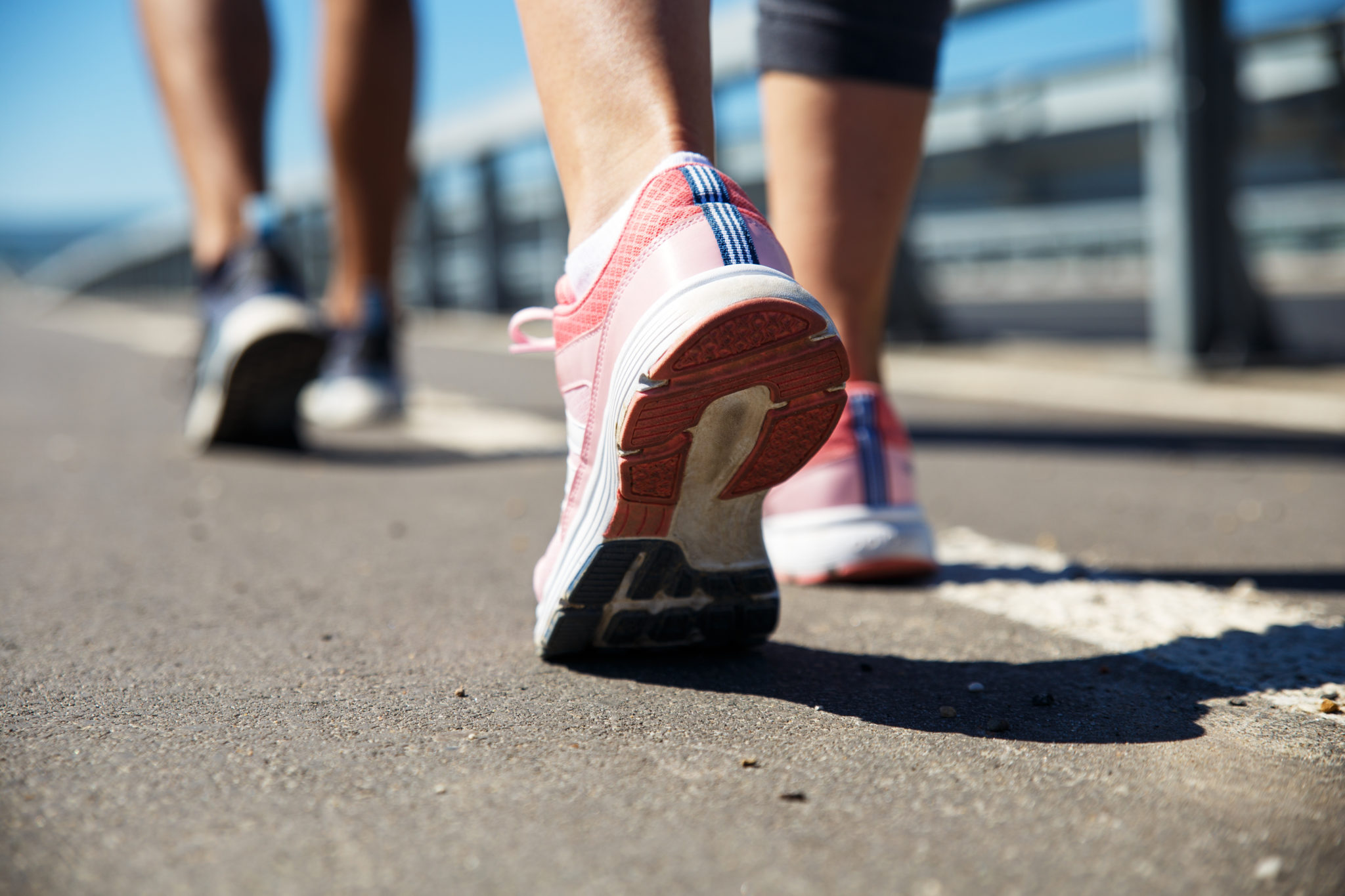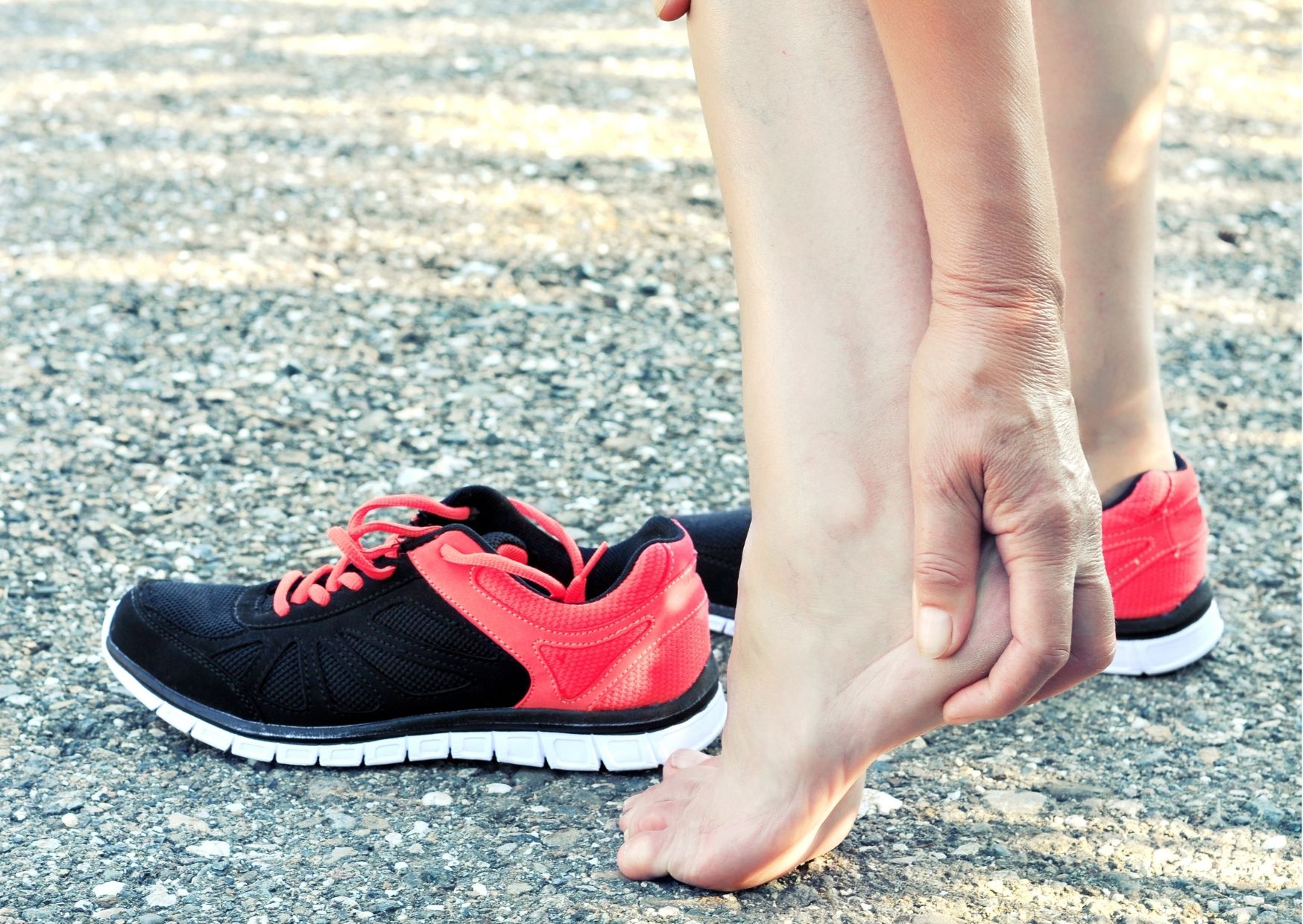Are you suffering from plantar fasciitis and looking for relief? Wearing specially designed footwear can be a great way to help ease the discomfort of plantar fasciitis. In this blog post, we will discuss reasons why you should wearing special footwear for plantar fasciitis is beneficial for people with plantar fasciitis. From cushioning your feet to providing support for your arch, there are many benefits to wearing shoes designed specifically for this condition. Keep reading to learn more about how the right footwear can help with your plantar fasciitis.
Decreases inflammation
Plantar fasciitis is often caused by inflammation of the plantar fascia, a band of tissue that runs along the bottom of the foot from the heel to the toes. The inflammation can lead to pain, swelling, and difficulty walking or standing for long periods of time. However, specially designed footwear for patients with plantar fasciitis can help decrease inflammation in the foot. One way these shoes help reduce inflammation is through the use of materials that provide ample cushioning and support for the feet. By reducing the pressure placed on the plantar fascia, these shoes can help reduce inflammation and provide relief from pain. Additionally, many shoes for plantar fasciitis feature arch support, which helps distribute the weight of the body evenly across the foot. This reduces the stress placed on the plantar fascia and can also help decrease inflammation.
Reduces pain
One of the most frustrating and debilitating symptoms of plantar fasciitis is pain in the heel or arch of the foot. This pain can make it difficult to walk or stand for long periods of time, and can greatly impact your quality of life. Fortunately, one of the primary benefits of wearing specially designed footwear plantar fasciitis is that it can reduce pain and discomfort. These shoes are designed to provide extra support and cushioning to the feet, which can help to absorb shock and reduce pressure on the plantar fascia. By reducing this pressure, these shoes can help to relieve pain and discomfort in the affected areas. Additionally, many plantar fasciitis shoes feature built-in orthodontics or inserts that can provide extra arch support, further reducing the strain on the plantar fascia. Many people find that simply wearing these shoes on a regular basis can greatly reduce their plantar fasciitis symptoms. If you’re someone who struggles with heel or arch pain, investing in a good pair of plantar fasciitis shoes can be an excellent way to find relief and improve your quality of life.
Heals the plantar fascia
Wearing special footwear designed for patients with plantar fasciitis can help heal the plantar fascia. The shoes provide proper arch support and cushioning that helps to distribute pressure evenly on the feet. This, in turn, helps to relieve the tension on the plantar fascia, which helps it to heal faster. The plantar fascia is a thin layer of tissue that runs from the heel bone to the toes. When it becomes inflamed or strained, it can cause severe pain and discomfort. Properly designed shoes for plantar fasciitis help to alleviate the pain and reduce the inflammation by providing a comfortable fit that doesn’t put too much pressure on the plantar fascia. Moreover, some footwear fasciitis also features a rocker bottom sole that helps to reduce the tension on the plantar fascia, making it easier to walk without experiencing any pain. In essence, wearing these shoes allows the plantar fascia to heal naturally, allowing you to go about your daily activities with ease.
Prevents further injury
Wearing footwear that is specifically designed for patients with plantar fasciitis can also help to prevent further injury. As we’ve mentioned earlier, plantar fasciitis is caused by inflammation of the plantar fascia ligament. If this ligament is not given enough support, it can become weakened and even more prone to damage. Specialized shoes are designed to provide the necessary support and cushioning to prevent further injury to the foot. These shoes have unique features that make them perfect for people with plantar fasciitis. For instance, they may have an elevated heel or arch support that reduces the amount of pressure placed on the plantar fascia when walking or standing. This feature helps to distribute your weight evenly across your foot, reducing the risk of straining the plantar fascia. Additionally, these shoes are designed to have a cushioned sole, which absorbs shock and reduces impact when you walk. This feature helps to prevent the repetitive strain on your plantar fascia and reduces your risk of further injury. By providing ample support and protection, specialized shoes help to promote the healing process of the damaged tissue, leading to a quicker recovery and reduced chance of re-injury.
Improves flexibility
Plantar fasciitis can cause tightness in the calf muscles and limited flexibility in the foot, leading to pain and discomfort. Footwear designed for plantar fasciitis can help improve flexibility and range of motion in the foot. These shoes often have a flexible sole and an arch support that provides a natural foot movement, promoting better flexibility. Regular stretching exercises and physical therapy can also improve flexibility. However, footwear designed for plantar fasciitis is an easy and convenient way to help alleviate the symptoms of this condition. With the right shoe, you can increase your mobility and reduce discomfort, which can make a significant difference in your overall quality of life. Moreover, improving flexibility also reduces the risk of further injuries, as it reduces the strain on the foot’s plantar fascia. Wearing proper footwear is essential to support and stabilize the foot during everyday activities, improving flexibility and providing long-term relief from plantar fasciitis. Therefore, investing in the right shoes that provide both support and flexibility is vital for individuals with plantar fasciitis to prevent further injuries, improve mobility, and alleviate the pain and discomfort associated with the condition.
Increases blood circulation
Wearing special footwear fasciitis can help improve blood circulation in the feet. When the plantar fascia is inflamed, it can restrict blood flow in the affected area, leading to discomfort and swelling. By wearing shoes designed for plantar fasciitis, the feet can get proper support, reducing the pressure on the plantar fascia and improving blood circulation. Improved circulation can lead to faster healing and reduced pain, as oxygen and nutrients are delivered more efficiently to the affected area. Furthermore, increased blood flow can help reduce inflammation, which is a significant contributing factor to the discomfort experienced by individuals with plantar fasciitis.
Reduces stress on the feet
Plantar fasciitis can cause a lot of discomfort and pain in your feet, which can affect your day-to-day activities. This is why wearing special footwear can greatly benefit people suffering from plantar fasciitis. These shoes are designed with a lot of care and precision, especially to support the arch and heel of your foot. The main aim of wearing this footwear is to reduce the stress on your feet by redistributing your body weight evenly across your foot. They have cushioned soles, which absorb the shock of walking or running, thus providing a soft landing for your feet. This decreases the impact of your body weight on your plantar fascia, and prevents further damage or inflammation to the area. The reduced stress on your feet can also improve your posture and alignment, leading to a reduction in overall pain and discomfort. The shoes provide ample support to your feet and help keep your ankles, knees, and hips aligned properly. This decreases the chances of developing other problems related to your joints or muscles.
Supports the arch of the foot
One of the main reasons why wearing special footwear helps with plantar fasciitis is that it supports the arch of the foot. The plantar fascia is a thick band of tissue that runs from the heel to the toes, and it is responsible for supporting the arch of the foot. When this tissue is damaged, the arch can collapse, leading to further pain and discomfort. Footwear that is specially designed for patients with plantar fasciitis usually includes additional arch support to help alleviate pain and discomfort. This additional support can help to redistribute pressure throughout the foot and relieve some of the stress on the plantar fascia. This is particularly important for those who spend long hours standing or walking, as the added support can help prevent further damage to the plantar fascia.
Customization
Not all cases of plantar fasciitis are the same. Some individuals may have a more severe case that requires additional support, while others may benefit from a more cushioned shoe. The great thing about footwear specifically designed for plantar fasciitis is that they can be customized to meet the unique needs of each individual. Shoes with removable insoles allow for the use of custom orthodontics, which can provide additional arch support and help alleviate pain. Additionally, some shoes come with adjustable straps or laces that allow for a customized fit, ensuring that the shoe fits snugly without causing any discomfort. Customization footwear not only provides a more tailored fit but also allows individuals to address any specific issues they may be experiencing with their plantar fasciitis. This, in turn, can lead to a more effective treatment and ultimately, faster relief from pain and discomfort.
Conclusion
In conclusion, wearing footwear specifically designed for plantar fasciitis offers numerous benefits. From decreasing inflammation and pain to improving flexibility and supporting the arch of the foot, these specialized shoes can significantly aid in the healing and prevention of further injury. Plus, with the ability to customize the fit and design of the footwear, individuals can further optimize the effectiveness of their shoes. If you suffer from plantar fasciitis, investing in specialized footwear can make all the difference in your day-to-day comfort and mobility.
Related Websites:
Articles on Blogshunt
Articles on Blogseu
Articles on Blogspeoples
Articles on Thebigblogtheory
Articles on Allcityforums



